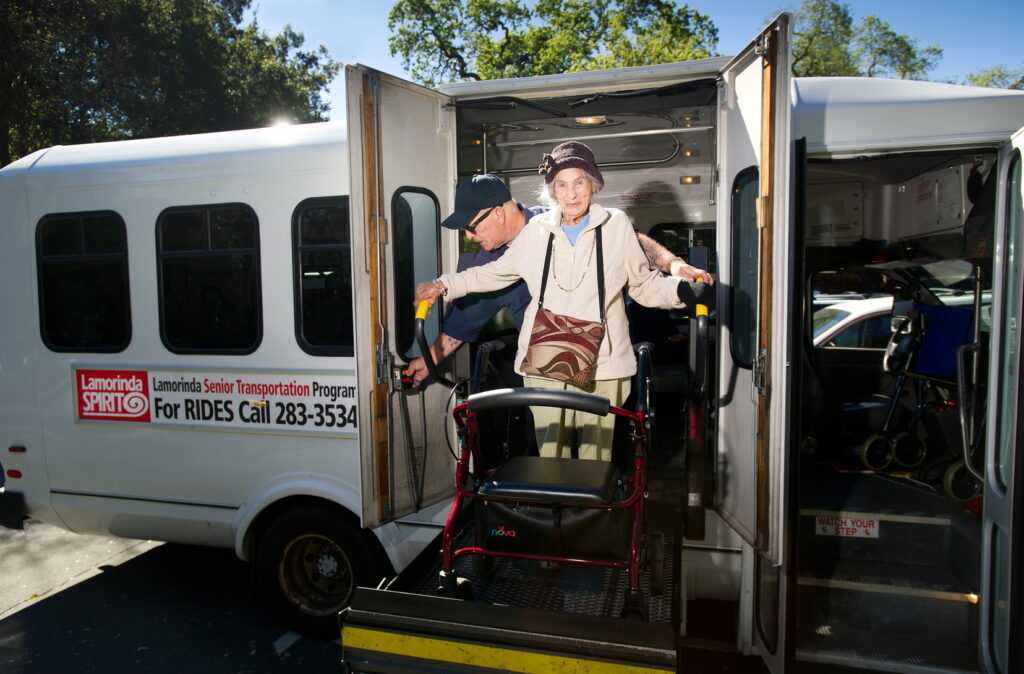Accessibility: Transforming Transportation for All Seniors and Paratransit Users
Accessible Transportation Programs
A wide range of accessible transportation services are available in Contra Costa county depending on where you live, your age and the disability you may have. Below are a few programs supported by CCTA. For a full list of programs in the county, visit Way To Go Contra Costa.
Low Income Fare Equity Program (LIFE)
Who it is for: Paratransit users who are low income earners
What it provides: 10 one-way trip tickets per month to use for local or regional rides
Cost: Free (valued at $30.00 per month)
How to Apply: Contact the bus provider in your area:
- County Connection LINK paratransit service 925-938-RIDE (938-7433)
- Tri-Delta Transit 925-706-4399
- WestCat 510-724-3331 ext 113
About: CCTA partnered with county bus services to create the LIFE Ticket Program. The program is paid for by Contra Costa County’s Measure X funding and is scheduled to run from February to December 2024 or until program funds are expended.
Mobility Matters
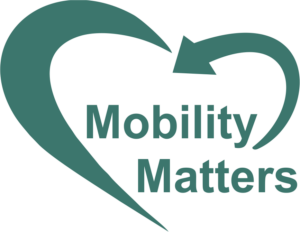
Who it is for: Seniors and people with disabilities
What it provides: One-on-one, door-through-door rides provided by screened and trained volunteer drivers
Cost: Free
How to Apply: Apply on the Mobility Matters website
About: To support the needs of seniors and people with disabilities, CCTA partnered with Mobility Matters, a non-profit service wherein more than 100 volunteers provide thousands of rides each year. CCTA and Mobility Matters also established the “Rides 4 Veterans” program to provide transportation services for veterans that are not covered by the Veterans Administration.
City of San Pablo's One Seat Medical Ride Service
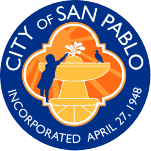
Who it is for: People in the 94806 zip code who are 50 years and older and/or people with disabilities who are 18
What it provides: Three round trip, ADA accessible shuttle trips per day; three days/week.
Cost: $5 one-way fare or $1 fare for extremely low-income residents. Attendants may ride free.
How to Apply: Apply on the City of San Pablo website
About: Paratransit riders in the western portion of Contra Costa County faced challenges getting to their medical appointments at county facilities. To eliminate the need for residents to transfer between paratransit vehicles while enroute to medical appointments at county medical offices and the hospital in Martinez, CCTA partnered with the City of San Pablo and the City of San Pablo Senior Center to allocate Measure X and Measure J 28b funds to create this program.
One Seat Regional Ride Program
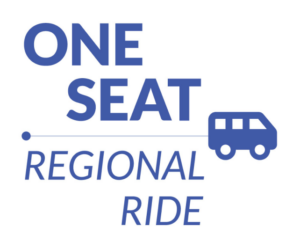
Who it is for: All certified ADA paratransit passengers traveling within the 4 participating agency service areas
- County Connection LINK
- Tri-Delta Transit
- WestCat
- Wheels
Cost: $3.00 – $5.50 per one-way trip depending on the home agency at pickup location
What it provides: Point-to-point shared-ride paratransit service without having to transfer buses at service area borders
How to Book: Call 925-680-2134. Repeat trips can be booked repeat trips can be booked using the My Transit Manager app.
About: Contra Costa County bus operators teamed up to provide the One Seat Regional Ride (One Seat) option for paratransit users who live in the county. One Seat is a direct trip to the paratransit passenger’s destination with no transfer required. If their trip is in the service area of the following providers, a County Connection operator can schedule a One Seat direct trip to their destination with no transfers required.
Capitol Corridor Discount Program

Who it is for: All senior citizens ages 62 and older and persons with a physical or mental disability.
Discount: 15% off of the regular fare.
What it provides: Regional Rail service between San Jose and the Sacramento region. Contra Costa County stops include Richmond and Martinez.
How to Book: For senior discount, use promotion code V282. For disabled passenger discount, use promotion code V577.
Accessible Transportation Planning
CCTA’s Integrated Transit Plan (ITP) to Improve Transit
The work CCTA does begins with strategic plans and continues with supporting and delivering mobility solutions aimed to connect communities, reduce harmful emissions and solve transportation challenges. CCTA’s ultimate goal is to provide a new set of easy-to-use options and tools that will improve accessibility for everyone and encourage all travelers to move toward shared modes.
CCTA is working with the Metropolitan Transportation Commission (MTC) and the four Contra Costa bus operators (AC Transit, County Connection, Tri Delta Transit, and WestCAT) to identify ways to optimize the transit network. The ITP will provide guidance for an improved transit network that better serves local and regional travelers.
The ITP will also include a list of improvements that will support enhanced services. The goal of these projects and improvements is to attract more riders and position the bus operators to meet future challenges.
The ITP will focus on the following areas:
Coordination: Identify ways to improve coordination between transit providers so that riders have convenient and seamless travel. Improved coordination will also result in more efficient use of public funds.
Innovation: Explore emerging technologies to enhance Contra Costa County’s transit system, like on-demand shuttles that get people to transit, Mobility as a Service, and traffic signals that prioritize the movement of buses.
Equity: Improve transit so that all communities and residents benefit, including low-income communities, communities of color, and people with disabilities.
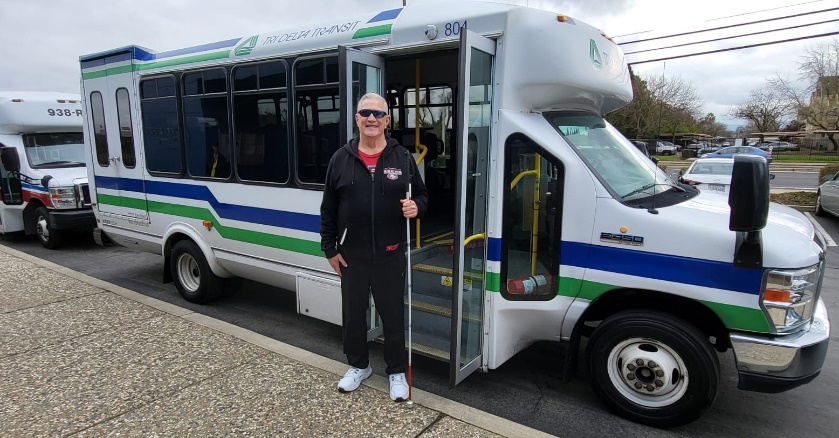
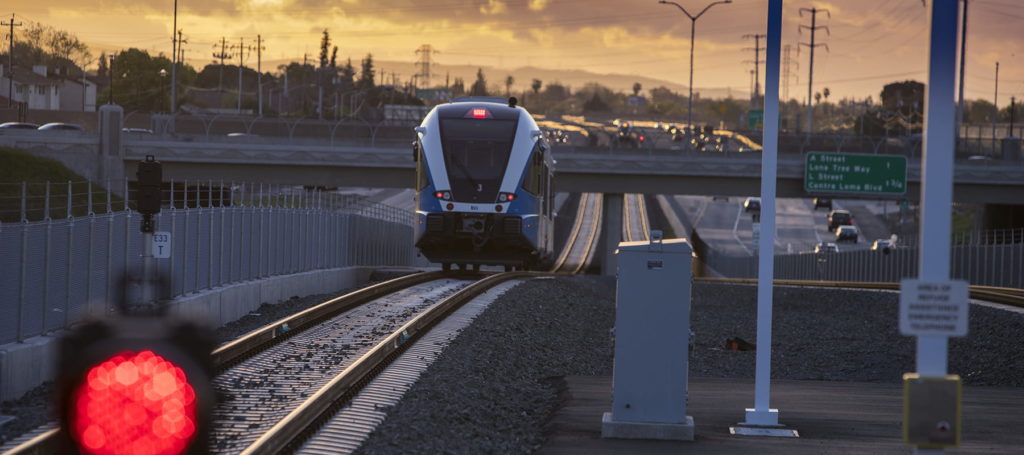
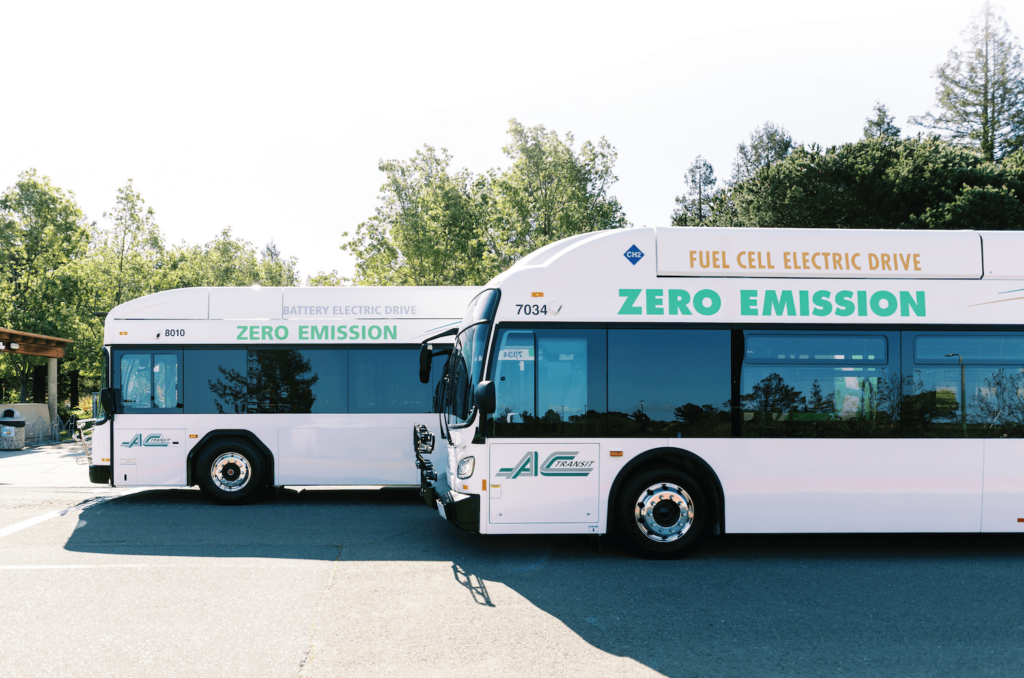
Accessible Transportation Strategic Plan
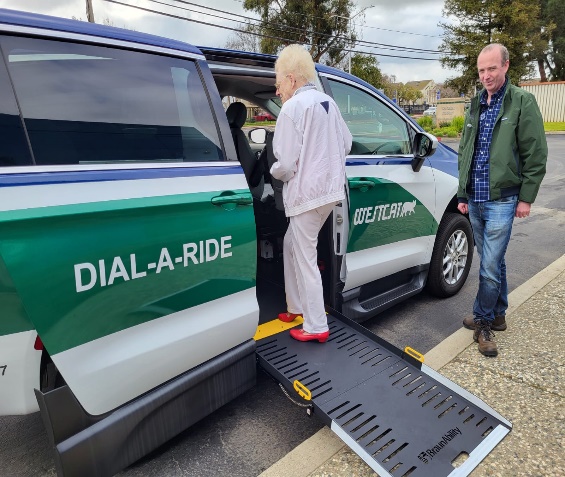
CCTA is dedicated to making transportation convenient for older adults and people with disabilities.
If you’re an older adult, have a disability, or are a veteran, transportation in Contra Costa County can be challenging. We want to identify ways to make it easier for you to get around the county—whether you’re going to an appointment, getting groceries or visiting family.
The Accessible Transportation Strategic (ATS) Plan
provides a coordination structure with strategies to improve
accessible transportation services, based on an examination
of transportation challenges facing seniors, people with
disabilities, and veterans in Contra Costa County.
To help guide the implementation of the Accessible Transportation Strategic Plan (ATSP), the Authority Board established a Task Force (ATSP TF) that meets throughout the year along with working group meetings as needed.
CCTA Office of Accessibility and Equity
CCTA’s Office of Accessibility and Equity (OAE) has the goal of improving mobility in Contra Costa county. The OAE fosters collaboration to lead integrating all of the accessible transportation services countywide. This work brings together community-based organizations, consumers, elected officials, transit providers, CCTA and county staff to implement programs such as a LIFE pilot, and the development of a Coordinating Entity.
CCTA was granted $1.4 million from Contra Costa County’s Measure X to support these activities. In 2023, Rashida Kamara was designated as Program Manager of Accessibility and Equity and leads the OAE efforts.
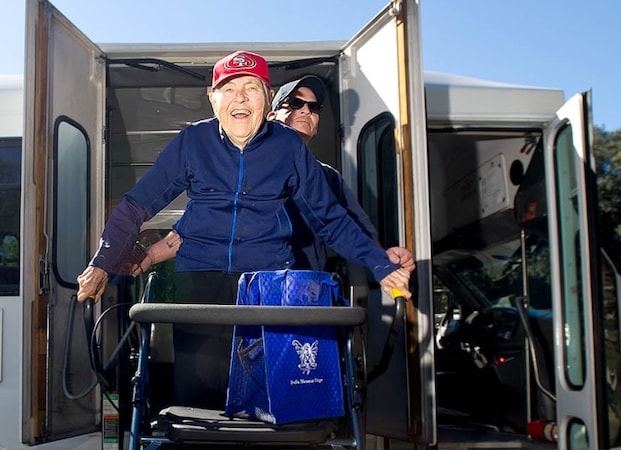
CCTA’s Accessible Transit Strategies
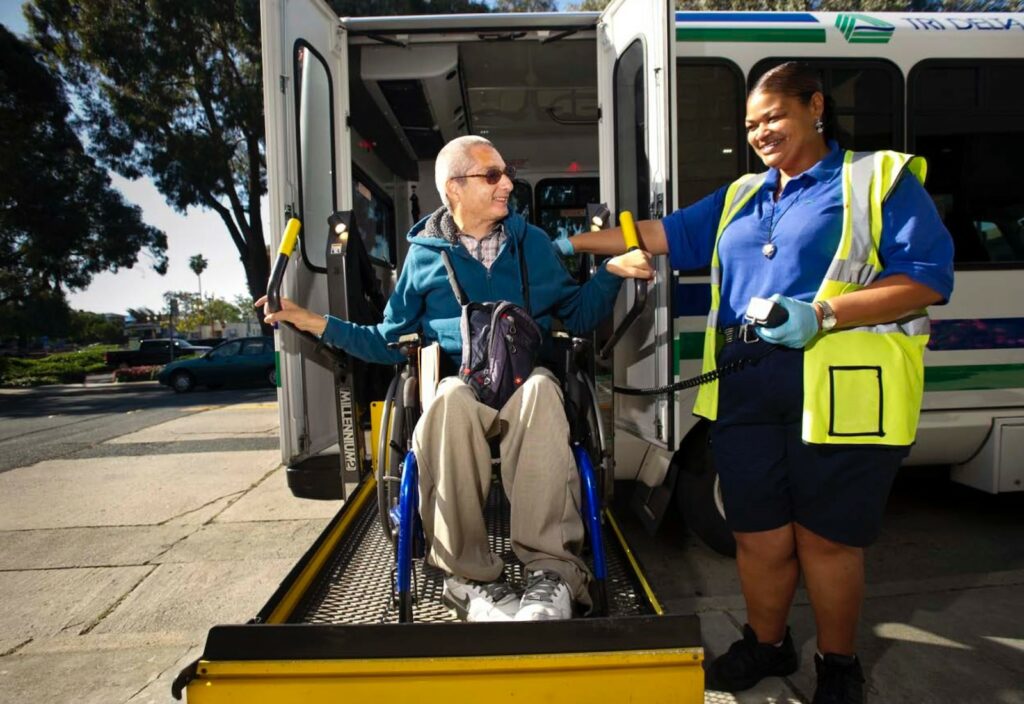
- Implement the CCTA Accessible Transportation Strategic Plan (ATSP)
- Implement pedestrian-friendly, ADA-compliant connections from housing and job centers to transit services and Shared Mobility Hubs
- Pilot autonomous vehicle (AV) programs to serve seniors and those with disabilities
- Develop an Accessibility App to provide real-time transportation options for the most vulnerable members of our community
The Future of Accessibility in Contra Costa County
Rossmoor Senior Community First/Last Mile Shuttles
Walnut Creek, CA
Coming in summer 2024, CCTA will launch an AV trial that is aimed to provide greater transit accessibility and independence for Rossmoor residents.
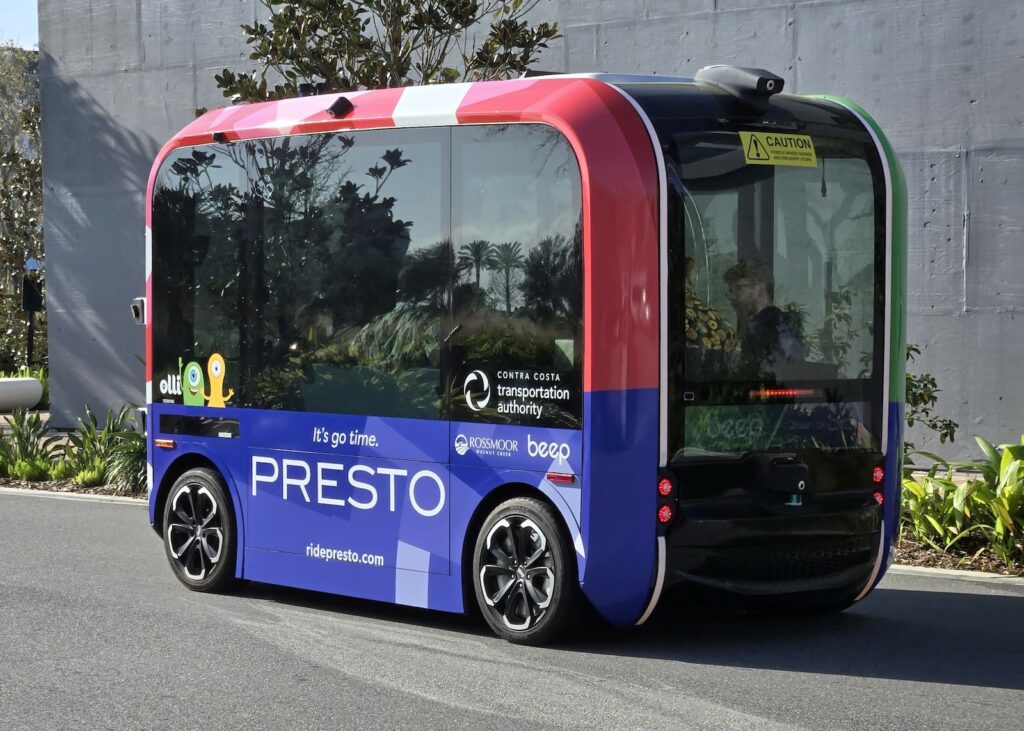
County Hospital Accessible Transportation Shuttles
Martinez, CA
This project is proposed to deliver on-demand, wheelchair accessible AV shuttle service in the City of Martinez for people who don’t have reliable transportation to medical appointments and hospital services.
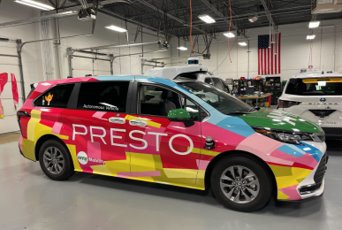
Innovate 680: Technology-Driven Mobility Solutions
I-680 Corridor
Innovate 680 is CCTA’s program to reduce congestion on I-680, a vital corridor in Contra Costa. Our county does not have a one-size-fits-all solution; any congestion management strategy for the corridor must consider upgrades to the existing infrastructure. The Innovate 680 strategy implements state-of-the-art technology to create a breadth of solutions to advance mobility as a service to provide accessibility for all, including autonomous vehicle (AV) pilot programs to serve our senior and disabled population.
Accessibility App
Countywide
In 2024, the United States Department of Transportation (USDOT) awarded $1.15 million in Strengthening Mobility and Revolutionizing Transportation (SMART) grant funding to CCTA to develop an Accessibility Application (App) designed to solve accessibility challenges faced by seniors and those with disabilities.
The SMART grant will help implement a centralized call center with access to all relevant transportation data, which would equip an agent to provide real time transit solutions for passengers. This new technology will enable transit agencies to make the best use of passengers’ specific needs, thus providing easy to access transit options for the most vulnerable members of our county.
The Accessibility App is a much-needed virtual tool as many transit agencies do not currently have paratransit or other accessible transit data with real time service options available for the average rider. Unlike regular bus routes that follow a set path, there are many different types of transportation services available who employ their own call centers or online route and scheduling information specific to their service. In addition, these services charge varying fares or fees based on the individual’s needs. These complexities make it harder for transportation providers to act as a one-stop shop to provide up-to-date information regarding all possible transit options that may be applicable for the individual rider. CCTA’s SMART Accessibility App will help create an open data platform for the purpose of providing real time transit options for passengers–particularly the disabled–and improve accessibility in our community.
